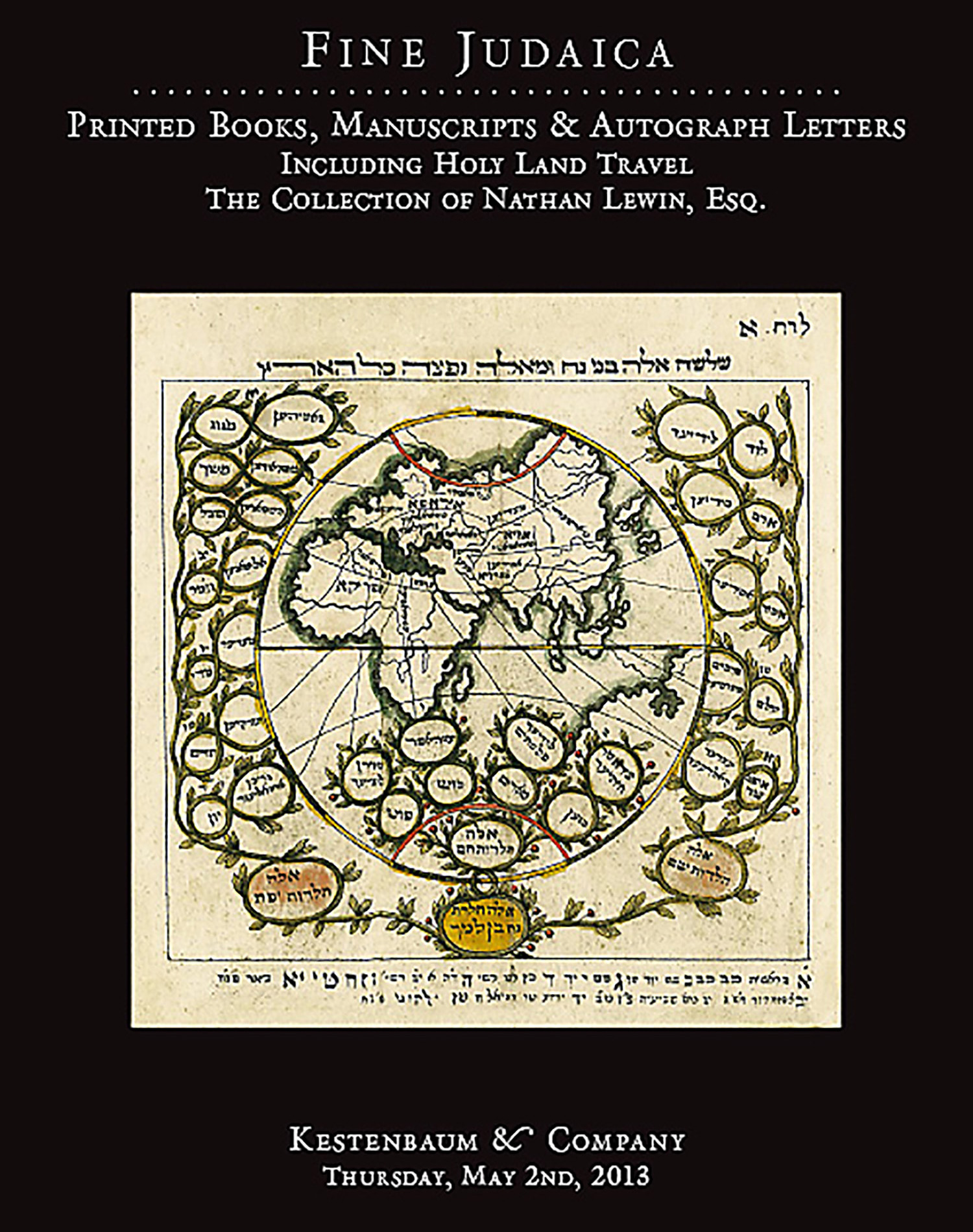Pesak ha’Din be’Inyan ha’Ach veha’Achoth.

AUCTION 58 |
Thursday, May 02nd,
2013 at 1:00
Fine Judaica: Printed Books, Manuscripts and Autograph Letters
Lot 136
GOREN, SHLOMO.
Pesak ha’Din be’Inyan ha’Ach veha’Achoth.
Jerusalem: Government Press 1973
Est: $300 - $500
PRICE REALIZED $425
Controversial legal defense by Chief Rabbi Shlomo Goren concerning the Langer Affair - siblings who discovered they were ineligible to wed since they had unknowingly been placed on a list of “mamzerim” (bastards) that circulated to all branch-offices of the Israeli Rabbinate. Subsequent contention in seeking to resolve this matter became a bitter cause celebre, as what should have remained a strictly halachic decision became highly politicized, as tensions rose along the fault line of partisan considerations, i.e. Mizrachi (Zionist) and Agudah (non-Zionist). The former Chief Rabbi of the Israel Defense Forces, Shlomo Goren intimated that were he elected Chief Rabbi of Israel, he would resolve the case in a manner satisfactory to all. Subsequently, R. Goren was portrayed as a lackey of the Israeli government, intent on currying favor with secular politicians. On the other hand, the Charedi Dayanim Rabbi Karelitz, Rabbi Ovadiah Yoseph and Rabbis Zolty and Elyashiv were vilified as insensitive to the plight of the two Langer siblings. R. Goren writes in the introduction here that at present he is withholding the names of the nine other Dayanim who agree with his approach “because of the foul atmosphere created by threats of fanatics against anyone who disagrees with their opinion.” Besides providing the court protocols and halachic justification for Rabbi Goren’s lenient ruling, this work portrays a sensitivity to a rather sordid and tragic affair that had ramifications for many years in the ongoing Kulturkampf between secular and religious Israelis.
